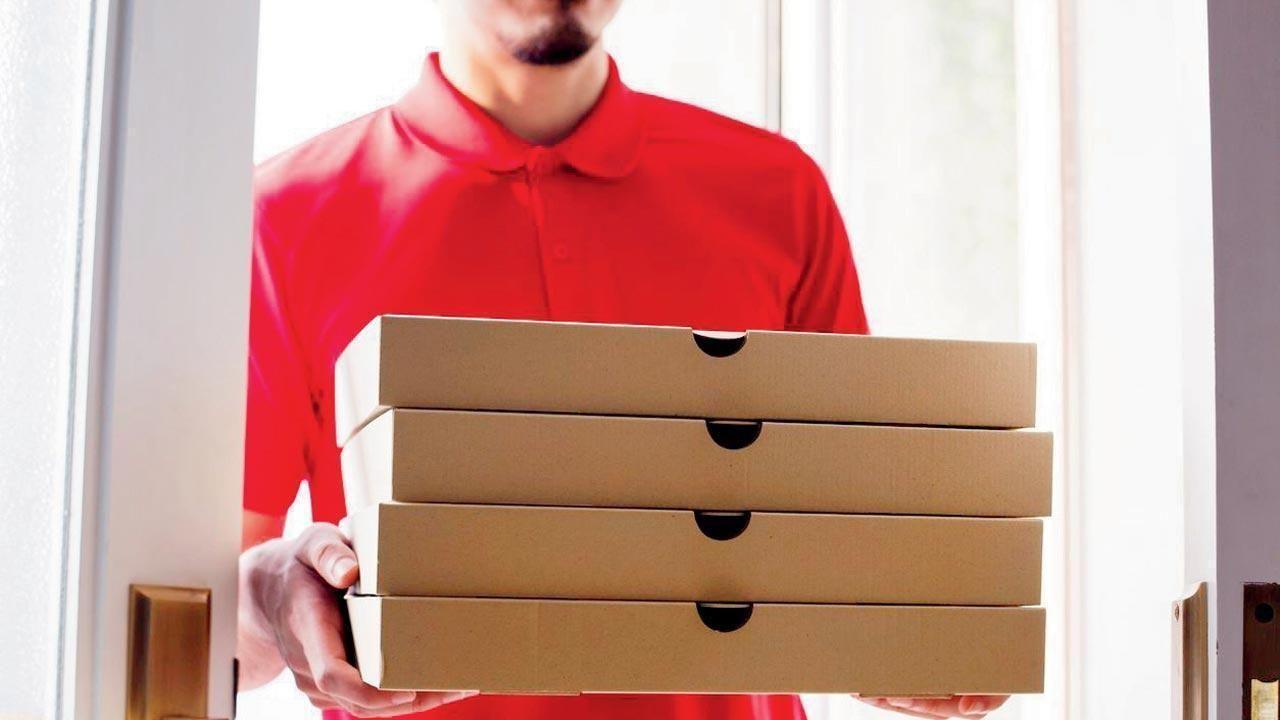There would be no extra tax burden on the end consumers taking food delivery from restaurants registered with the GST. However, the levy will plug tax evasion being done by unregistered restaurants

Photo used for representational purpose
The GST Council on Friday approved a proposal to treat food delivery apps such as Zomato and Swiggy as restaurants and levy 5 per cent GST on supplies made by them.
ADVERTISEMENT
Such food delivery apps will now be required to collect 5 per cent GST, or Goods and Services Tax, from consumers instead of the restaurant they pick up orders from, Finance Minister Nirmala Sitharaman said on Friday evening after the Council meeting.
There would be no extra tax burden on the end consumers taking food delivery from restaurants registered with the GST. However, the levy will plug tax evasion being done by unregistered restaurants.
The changes will be effective from January 1, 2022 to allow the e-commerce operators time to make changes in their software for such tax to be charged.
"E-commerce operators are being made liable to pay tax on following services provided through them: transport of passengers, by any type of motor vehicles through it (w.e.f. January 1, 2022), restaurant services provided through it with some exceptions (w.e.f. January 1, 2022)," a Finance Ministry statement on the GST Council's decisions said.
"The decision to make food aggregators pay tax on supplies made by restaurants from January 1, 2022 seems to have been done based on empirical data of underreporting by restaurants, despite having collected tax on supplies of food to customers. The impact on the end consumer is expected to be neutral where the restaurant is a registered one. For those supplies from unregistered, there could be a 5 per cent GST going forward," Deloitte India Partner Mahesh Jaising said.
"The proposal could of this nature could typically be implemented in two manners. Option 1, the food aggregator would charge GST and restaurant would not charge GST. This would be similar to cab aggregators and under this option, the restaurant would need to have two separate invoicing system - one for supplies in the restaurant and the other, through aggregators. Option 2, could be that the restaurants continue to charge GST and the food aggregator be treated as a deemed supplier (and buyer). This would have the same impact of tax recovery from the food aggregator like in Option 1, with a variance being that credit would need to be claimed by the food aggregator," he added.
As per estimates, the tax loss to exchequer due to alleged under-reporting by food delivery aggregators is Rs 2,000 crore over the past two years.
Under the GST, these apps are currently registered as Tax Collectors at Source (TCS).
One of the reasons for designing such a proposal was that there was no mandatory registration check by Swiggy/Zomato and there were unregistered restaurants supplying through these apps.
This story has been sourced from a third party syndicated feed, agencies. Mid-day accepts no responsibility or liability for its dependability, trustworthiness, reliability and data of the text. Mid-day management/mid-day.com reserves the sole right to alter, delete or remove (without notice) the content in its absolute discretion for any reason whatsoever.
 Subscribe today by clicking the link and stay updated with the latest news!" Click here!
Subscribe today by clicking the link and stay updated with the latest news!" Click here!






